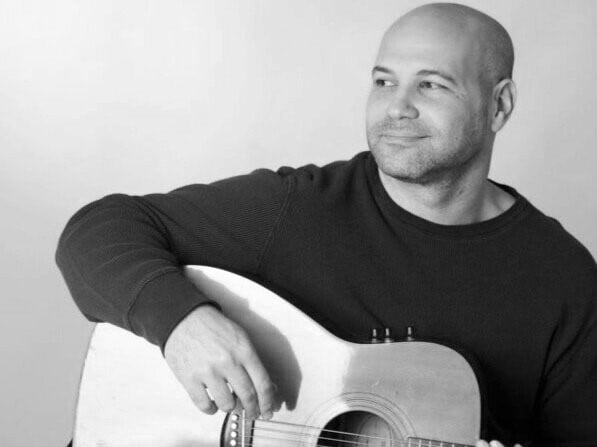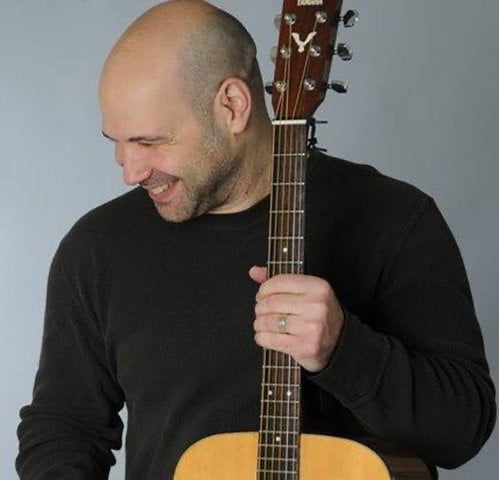Ross Freedman is an American indie rock singer-songwriter who is based in Chicago, Illinois. His lyrics are frequently sincere, personal, and inclusive. His musical style is heavily influenced by the AM radio kingpins of the 1970s, and both the songs’ warm production and their lyrical content have echoes of that era.
Ross, who is originally from the Boston suburbs’ north, wrote his first song, “The Martian Street,” when he was just 8 years old, the same year he started taking piano lessons. Because the bass player for the rock band he played in never showed up for any rehearsals, he switched from playing in the high school orchestra and marching band to percussion and also picked up the bass guitar. Ross continued to play bass in a few bands while in college, studied engineering and production, and took guitar lessons. Writing songs and recording them on a 4-track recorder to cassette tape throughout.
Following a brief stay in Washington, D.C., Ross relocated to Chicago where he enrolled in (and continues to enroll in) songwriting classes at the renowned Old Town School. Ross later recorded his first two albums, “Hold Fast” (2011) and “Fall” (2016), with Steve Dawson serving as producer. In 2022, he issued a new song, “horizon.”
first music release since 2015. In the midst of the pandemic and shortly after the deaths of his mother and father-in-law in 2019, he wrote “Horizon.” He didn’t know it when he was writing it, but he now realizes that the song is about the optimism of regaining one’s footing following a string of extreme, unsettling events. Check out his song ‘Horizon’ and the exclusive interview below:

1. Can you tell us a bit about where you come from and how you got started?
ROSS FREEDMAN: First, thanks for having me. I really appreciate it!I was born in Massachusetts, USA, and grew up north of Boston (my town used to be part of Salem—one of the Salem witches, Giles Corey, the one who was pressed to death, lived not far from my childhood home).
I now live in the Chicago, Illinois, area. I can’t remember a time when I didn’t listen to music or sing along to a record or cassette player. I used to sing with my mom as a toddler when my dad was at work and my older sister was at school. And I loved the music on “Sesame Street” and other PBS TV shows.
2. Did you have any formal training or are you self-taught?
ROSS FREEDMAN: I have a mix of formal training and experimenting on my own. Long before I had any idea of what I was doing, I wrote my first song (“The Martian Street”) in third grade, which is also around the same time I started with piano lessons. I took piano through my last year of secondary school. All the while, I had been learning to play percussion—glockenspiel, chimes, xylophone, vibraphone—in school orchestra, and I was involved in school choir and musicals like “How To Succeed In Business Without Really Trying” and “Oliver!” I taught myself to play other percussion in orchestra and played bass and snare drum in marching band. A few friends and I had a cover band in secondary school, and I was meant to play keyboards. But because the bass player never bothered to show up, I decided that I would try to learn bass guitar also. I have to give a shout out to Tom and Mike Lamy who were the music teachers at my secondary school. They gave me the freedom to “explore the space” of music. At university, I played bass guitar in a band, sang in the choir, and took music theory and studio recording classes, while also learning how to use my friend Rob’s TASCAM Portastudio and program his drum machine. (Thanks, Rob!) Off and on for the past 25 years, I have taken a songwriting class at the world-renown Old Town School of Folk Music in Chicago.
3. Who were your first and strongest musical influences?
ROSS FREEDMAN: My sister and I used to listen to Disney compilation albums when we shared a bedroom. Later, I would sleep in her bedroom during the summer (she had the air conditioner) and we’d play records before we fell asleep—Jackson Browne, Fleetwood Mac, Steely Dan, and I was originally inspired to learn piano by listening to Barry Manilow and the great trilogy of Billy Joel albums (“The Stranger,” “52nd Street,” and “Glass Houses”). I have a strong grounding in the AM-radio singer-songwriter vibe of the 1970s in the US. My great-aunt Alice gifted her family’s piano to mine under the condition that we invite her to all of my piano recitals—and she came to every single one!
4. What do you feel are the key elements in your music that should resonate with listeners, and how would you personally describe your sound?
ROSS FREEDMAN: Lyrically, I think my songs are a somewhat oblique, but I’m often trying to work out something I’m dealing with emotionally. I think there can be a strong emotional pull to them that’s earnest and universal. Musically, I’m often looking to upend the listeners expectations with either an unexpected chord or a surprising bit of arranging. I love most power pop, and the earworm chord is something that’s very appealing to me. There’s a warm pop vibe to most of my music, with a little bit of folk, a little bit of lo-fi indie. It’s almost like twirling a radio dial or shuffling a playlist to me.

ROSS FREEDMAN:
We could jump back to “The Martian Street” to begin to answer this. I was inspired to write it by “The Monkees” theme song. I suspect that many of my early songs—into my teens and 20s—were pastiches of existing songs trying to duplicate the sound of, say, U2 or The Minutemen or, and this is pretty current, Ben Folds. The key for me is to take these hundreds of influences, throw them into a blender, and see what comes out.
6. What’s your view on the role and function of music as a political, cultural, spiritual, and/or social vehicles – and do you try and foreground any of these themes in your work, or are you purely interested in music as an expression of technical artistry, personal narrative and entertainment?
ROSS FREEDMAN:
Music is, first and foremost, to me, a spiritual thing. Leaving aside its importance in rites and literal spiritualism, it can be such a powerful force for good—whether that’s dancing your face off, screaming lyrics with your friends on a car ride with the windows down, or becoming part of a larger experience at a concert. Some songs, it’s important just to LISTEN. I have written a few “protest” songs, but I don’t feel it’s my place to coopt someone else’s point of view from my place of privilege.
7. Do you feel that your music is giving you back just as much fulfilment as the amount of work you are putting into it, or are you expecting something more, or different in the future?
ROSS FREEDMAN:
This is such a good question because it’s easy to get lost in the machinery of “how do I make more money doing this?” I have a quote-unquote “real job,” and because music isn’t my primary focus, I get SO MUCH out of it. Writing a song feels like a great accomplishment. Editing and finishing it brings a lot of satisfaction—it’s like finishing a jigsaw puzzle. Recording it enables me to get what I hear in my head when I first write it “on tape,” which is such a gift. And when I record, I’m always collaborating with some great musicians who also happen to be tremendous people. They bring their own spice to the mix, which goes above and beyond my imagination and expectation every time.
8. Could you describe your creative processes? How do usually start, and go about shaping ideas into a completed song? Do you usually start with a tune, a beat, or a narrative in your head? And do you collaborate with others in this process?
ROSS FREEDMAN: Excellent question. I wish I could describe the process that would be like a manufacturing process. It’s SO not that. Sometimes I have an assignment with a prompt like “use at least five words from this list in your song.” Other times, I’ll have a melody pop into my head as I’m falling asleep and I’ll try to loop it in my brain so I’ll remember it. It’s different every time. Inspiration comes like a shot, and can vanish just as quickly. About a year ago, our neighbors were giving away their piano. I’ll often just noodle on that. Sometimes an idea will come to me and I’ll make a Voice Recording and announce the chord changes or take some video. One of the loveliest things about the songwriting class I take is this: every week, we each present a song based on the current assignment. And the entire class will provide constructive criticism about lyric choices, structure, chords, melody, you name it. Playing songs for someone else whose ideas and feedback I trust is an essential part of my process. Someone saying, “This is a keeper, but I think you could use a bridge here and maybe go to an A7.” is the best kind of collaboration.
9. What has been the most difficult thing you’ve had to endure in your life so far?
ROSS FREEDMAN: I’ve had a lot of loss in my life, and a lot of grieving, especially as a young teen. Many of my songs are probably my brain revisiting how to process my grief now—at whatever point in time the song is written.
10. Similarly, what would you consider a successful, proud or significant point in your music career so far?
ROSS FREEDMAN: Recording my first album (“Hold Fast” 2011) and having both of my parents and some other family members at the release show—which was very late at night!—was something I never thought I’d accomplish. Recently, with “Horizon,” one morning I woke up and saw that it had gotten more than 2,000 streams overnight. That blew me away. I want to thank you for this interview. It was great!
KEEP IN TOUCH:
SPOTIFY | BANDCAMP | WEBSITE | YOUTUBE

Photo credits: Jennifer Alten
